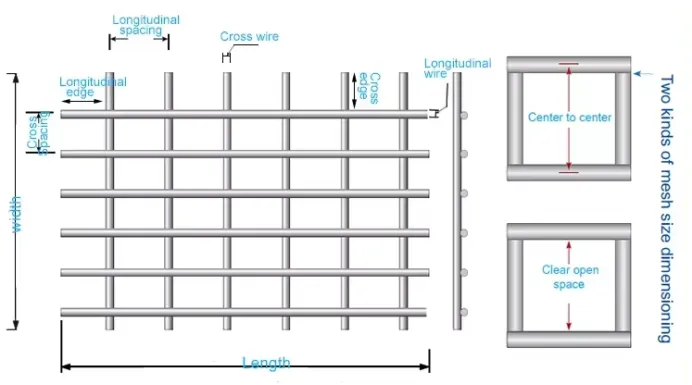Dec . 05, 2024 15:40 Back to list
field fence
The Importance and Versatility of Field Fences in Agricultural Practices
Field fences play a crucial role in the world of agriculture, providing essential solutions for managing livestock, protecting crops, and delineating property boundaries. This seemingly simple structure is a vital component of modern farming practices, ensuring that agricultural operations run smoothly and sustainably.
Field fences come in various designs and materials, including woven wire, barbed wire, and electric fencing. Each type serves distinct purposes and caters to specific needs. Woven wire fences, for example, are popular for containing cattle and sheep due to their durability and ability to prevent animals from escaping or predators from entering. Barbed wire fences, on the other hand, are often used for cattle ranching, providing a cost-effective barrier that deters large animals from crossing boundaries. Electric fencing, a more modern and technological approach, offers a heightened level of security and is particularly useful in managing large herds or keeping wildlife away from crops.
One of the primary functions of field fences is livestock containment. Livestock can be unpredictable, and ensuring their safe enclosure is paramount for any farmer. A well-constructed fence helps reduce the risk of animals wandering into dangerous areas or neighboring properties, which can lead to accidents or liability issues. Additionally, proper containment allows farmers to create rotational grazing systems that improve pasture health and promote sustainable land use.
Field fences also play an essential role in protecting crops from wildlife. Deer, rabbits, and other animals can cause significant damage to crops, leading to financial losses for farmers. By establishing effective fencing around fields, growers can mitigate these risks and secure their investments. Fences serve as a physical barrier, keeping hungry animals from feasting on young plants and mature crops alike.
field fence

Moreover, field fences are instrumental in defining property boundaries. Clear boundaries are critically important in rural areas where properties can be adjacent to one another without clear demarcation. Quality fencing not only helps in reducing disputes over land use but also enhances the aesthetic appeal of a farm. A well-maintained fence can signify care and diligence, reflecting positively on the farm's overall image.
In addition to their practical uses, field fences can also contribute to the overall ecosystem
. For instance, they can serve as habitats for various forms of wildlife. Birds and insects often find shelter in the grasses and shrubs that grow along the fence lines, promoting biodiversity. Some farmers have begun to incorporate fencing into their biodiversity strategies, creating wildlife corridors alongside agricultural land, which enhances ecological balance and sustainability.Despite the evident benefits, maintaining field fences is crucial to ensure their longevity and effectiveness. Over time, environmental factors such as erosion, rust, and animal behavior can compromise the integrity of a fence. Regular inspections and prompt repairs are essential to keep fences in optimal condition. Investing time and resources into fence maintenance can save farmers significant headaches and costs in the long run.
The rising popularity of sustainable farming practices has only increased the relevance of field fences. Organic farmers, in particular, depend on effective fencing to ensure that their crops remain free from contamination by non-organic pest control methods or chemicals from neighboring farms. Furthermore, the trend towards permaculture and agroecology emphasizes the importance of well-planned farming systems, where field fences are essential for creating zones that optimize resource use.
In conclusion, field fences are an indispensable aspect of agricultural practices, serving multiple functions that benefit farmers, livestock, crops, and the environment. From livestock containment to crop protection, and from defining property boundaries to promoting ecological health, field fences are much more than mere barriers. As agriculture continues to evolve, the role of fencing will remain vital, adapting to meet the challenges of modern farming and contribute to sustainable practices for the future. Whether through traditional materials or innovative technologies, the importance of field fences in agriculture cannot be overstated.
-
The Role of Field Wire Fence in Grassland Conservation
NewsJul.15,2025
-
Stainless Steel Razor Wire Durability in Coastal Environments
NewsJul.15,2025
-
Enhancing Home Security with Mesh Fences
NewsJul.15,2025
-
Diamond Mesh Wire for Small Animal Enclosures
NewsJul.15,2025
-
Common Wire Nail Tensile Strength Testing for Woodworking
NewsJul.15,2025
-
Barbed Wire Corrosion Resistance Galvanization Techniques
NewsJul.15,2025









